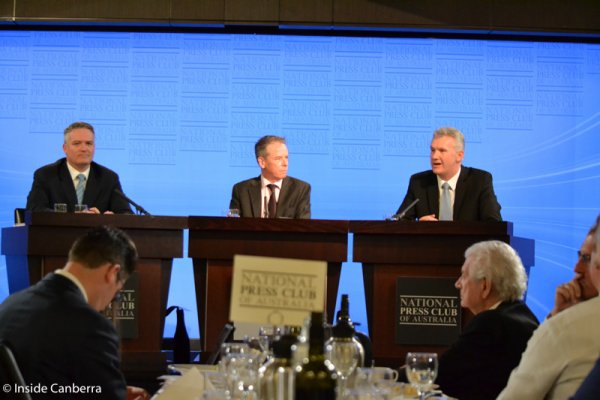Q. Can men be feminists, or is it perhaps not a term men are entitled to appropriate?
Yes, in principle. But I would only claim associate membership at best. A male with genuine feminist sympathies would recognise the limits of his ‘ownership’ of the campaign, and full appropriation would be a quintessentially male thing to do – thus, antithetical to feminism. At a more practical level, I think it is reasonable to assert strong interest and commitment to the project without trying to control it or in some way dilute its meaning.
A male with genuine feminist sympathies would recognise the limits of his ‘ownership’ of the campaign
Q. If asked publicly whether or not you call yourself a feminist, what would you say? And why?
I’d say it is not for me to say. Given the nature of the power-relations which feminism exists to critique, I worry that self-designation is an act which is philosophically ultra vires – i.e. beyond my authority to award.
I worry that self-designation is an act which is philosophically ultra vires
Q. What does it mean to be a male feminist?
It means you recognise as wrong the disparity in power and opportunity that has been baked into virtually every element of our lives and socio-political organisation. And it means you try to overcome those wherever possible.
Q. In 2015 both the Prime Minister and Opposition Leader declared themselves ‘feminists’. Is male feminism newly fashionable?
I cut both some slack for saying this. I believe they were making a political point in good faith although for reasons stated above, I think that is dubious. Nonetheless, I imagine they were using their leadership positions to further the cause. There is an argument that making men discuss feminism is a good thing. Of course, it is unremarkable and yet ironic that both leaders are men – they nearly always are.
Q.Why do you think a significant cohort of young women refuse to use the term ‘feminist’ about themselves, and yet ascribe to all tenets of feminism?
Essentially because a good deal of the heavy lifting has been done. Women entering adulthood now know little and probably feel even less of the injustices of the past. They would be just as appalled as older feminists at public service rules stopping married women from working, or the exclusively male franchise before that, but these gains which fired the great feminists have been secured. This is a very complex area of discussion. Younger women can not only take for granted the hard-won advances of their forebears but may even be inclined to surrender some. It is frustrating and requires constant education and vigilance.
Behaving as a feminist is easier in principle, than it might be in practice
Q. Should all men, young men in particular, be encouraged to behave as feminists?
Yes of course. But how that is achieved is unclear. Behaving as a feminist is easier in principle, than it might be in practice. Would that involve a young man giving up a promotion to allow a female colleague through? How many people in a highly competitive career market would do that?
Men need to see feminism as the next frontier
More broadly, I have long believed that men need to see feminism as the next frontier – as an equality fight that is just as important morally as was the emancipation of people based on race and the elevation of fair pay, reasonable hours and other basic labour rights. I think the fact that labour and social democrat parties have been slow to this is a function of the fact that these parties are still largely controlled by men. Also, so much of the work to be done now is in the attitudinal space – rather than in major law reform. Thus it is not easy, nor “sexy”. As we’ve seen recently regarding same-sex marriage, it is hard graft, but that is even more difficult when the end point is not merely some law change, but cultural and social adjustment. That is truly hard.
… so much of the work to be done now is in the attitudinal space





